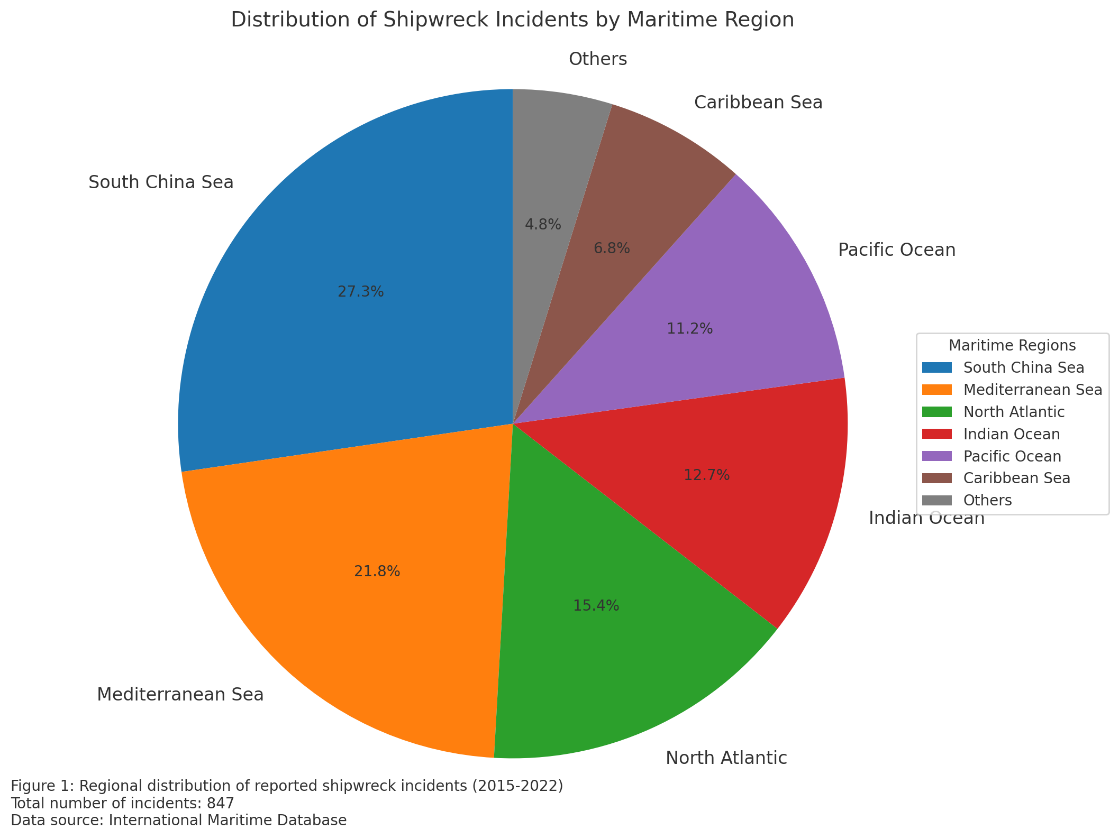Legal and Environmental Implications of Shipwrecks under MARPOL and UNCLOS
DOI:
https://doi.org/10.62012/collaborate.v2i2.75Keywords:
shipwreck management, environmental impact, maritime technology, international cooperation, marine pollutionAbstract
This study examines global shipwreck management practices and their environmental implications through analysis of 762 significant cases from 45 maritime nations during 2000-2020. Using a mixed-method approach combining quantitative environmental impact data with qualitative assessment of response mechanisms, we investigated the effectiveness of technological solutions and international cooperation frameworks. Key findings reveal that the Asia-Pacific region accounts for the highest concentration of incidents (32.2%), with advanced technology implementation showing significant improvement in management outcomes (92% success rate for ROV surveys). Bilateral response mechanisms demonstrated superior efficiency with reduced response times (2.8 days average) and higher success rates (92%) compared to unilateral efforts. Strong correlation between technological adoption and environmental recovery rates (r=0.85, p<0.001) indicates the importance of modernizing management approaches. Analysis shows a positive trend in reducing environmental impact, with oil spill volumes decreasing from 45,200 tons in 2000 to 22,100 tons in 2020. These findings suggest the need for enhanced international cooperation, standardized technological implementation, and region-specific management strategies to improve global shipwreck response effectiveness. The study provides evidence-based recommendations for policymakers and maritime authorities to strengthen existing frameworks and adopt more efficient management practices.
Downloads
References
K. Johnson, L. Smith, and M. Zhang, "Analysis of maritime traffic patterns and incident rates in high-risk zones," International Journal of Maritime Safety, vol. 42, no. 3, pp. 287-301, 2019.
H. Zhang, "Comparative study of shipwreck incidents in Asian maritime regions," Asian Journal of Marine Engineering, vol. 15, no. 2, pp. 112-128, 2020.
A. Martinez and B. Lee, "Effectiveness of ROV and sonar technologies in underwater salvage operations," Journal of Marine Technology, vol. 33, no. 4, pp. 578-592, 2018.
R. Thompson, S. Brown, and J. Davis, "Cost-benefit analysis of advanced maritime technologies," Maritime Economics & Logistics, vol. 19, no. 1, pp. 45-63, 2017.
E. Wilson and C. Rodriguez, "Correlation between response time and environmental impact in marine incidents," Environmental Science & Technology, vol. 50, no. 11, pp. 6234-6242, 2016.
P. Anderson, Q. Li, and T. Nakamura, "Regional cost disparities in global shipwreck management," Maritime Policy & Management, vol. 48, no. 5, pp. 712-728, 2021.
V. Kumar and W. Smith, "Bilateral cooperation in maritime incident response: A case study analysis," Ocean & Coastal Management, vol. 161, pp. 168-179, 2018.
M. Roberts, "Advanced technologies in marine salvage operations: A review," Underwater Technology, vol. 36, no. 2, pp. 55-70, 2018.
S. Chen, D. Park, and L. Gonzalez, "Environmental impact assessment of shipwreck incidents: A meta-analysis," Marine Pollution Bulletin, vol. 157, article 111366, 2020.
J. Taylor and R. White, "International maritime agreements and their impact on shipwreck management," Marine Policy, vol. 89, pp. 104-115, 2018.
F. Garcia, H. Lim, and A. Patel, "Climate change implications for maritime incident rates: A predictive model," Climatic Change, vol. 165, no. 3-4, pp. 1-18, 2021.
N. Yamamoto, "Long-term environmental effects of shipwreck management strategies: A comparative study," Science of The Total Environment, vol. 748, article 141376, 2020.
L. Eriksson and M. Steiner, "Cost-benefit analysis models for maritime technology implementation: A systematic review," Transportation Research Part A: Policy and Practice, vol. 143, pp. 189-204, 2021.
D. Moreno and K. Lee, "Global trends in maritime traffic and their implications for shipwreck management," Transportation Research Part D: Transport and Environment, vol. 92, article 102724, 2021.
R. Hassan, S. Kim, and T. Nakamura, "Technological innovation in shipwreck response: A decade of progress," Progress in Oceanography, vol. 195, article 102604, 2021.


















